For more analysis download the Survey Findings report.
Activities
How the outcomes were achieved
- All activities
- New study options
- Additional Experiences
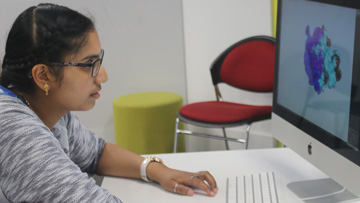 AMSPP collaboration
AMSPP collaboration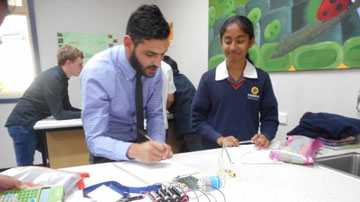 ASELL for Schools - Victorian Node
ASELL for Schools - Victorian Node Back to school
Back to school Communicating Science
Communicating Science Contemporary Biology and Environmental Science In Education
Contemporary Biology and Environmental Science In Education Contemporary Science Schools Network
Contemporary Science Schools Network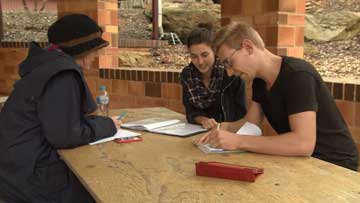 Discovery STEM initiative
Discovery STEM initiative Maths videos
Maths videos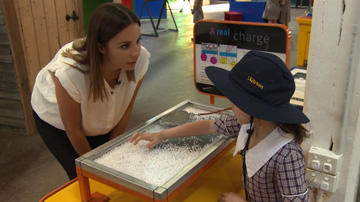 Multidisciplinary Science and Technology in Education collaboration
Multidisciplinary Science and Technology in Education collaboration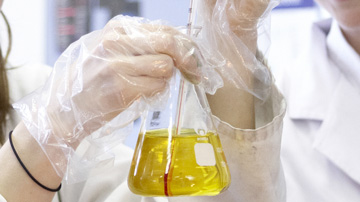 Reconceptualising Chemistry
Reconceptualising Chemistry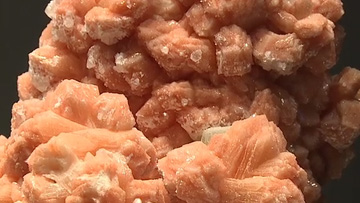 Reconceptualising Rocks
Reconceptualising Rocks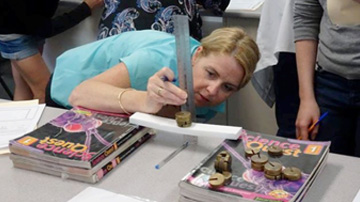 Representing scientific practice at the Institute for Frontier Materials
Representing scientific practice at the Institute for Frontier Materials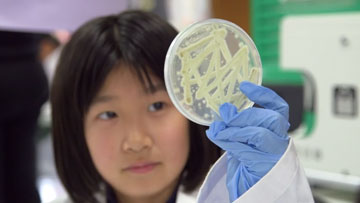 Scientists as Partners in Education
Scientists as Partners in Education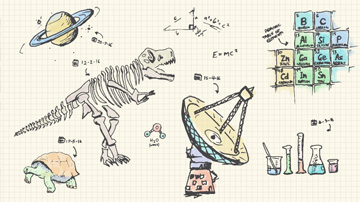 Science Squad
Science Squad
Science and mathematics specialist pathways
New specialist pathways in Mathematics and Science were created within the Master of Teaching (Primary) course structure at the University of Melbourne, allowing students to focus on these areas from their first year
Contact

Responds to ReMSTEP innovation(s):
Maths and Science teaching specialisations within ITE primary programs.
Key points
- Program structuture enhanced to provide maths and science specialisations in collaboration with Science department
- First cohort of pre-service teachers with a specialisation graduated in 2016
The ReMSTEP project enabled the University of Melbourne’s Master of Teaching (Primary) program to create specialist pathways in Mathematics and Science, in which pre-service teachers undertake dedicated study in those fields. These pathways are designed for those who have a relevant study or employment experience and/or a strong interest in teaching these subjects. Entry is competitive, and was first offered in semester 2, 2014.

You have to talk about [STEM], you have to read about it to make sense of it. For these students, we assume or expect they know what STEM is. So once we have those definitions then we can start talking to them about planning for the teaching of STEM. And that planning, which is the centre for any good lesson, is absolutely critical to know where the learning opportunities are for your students. So you have to plan in great detail… and it is hard work and time-consuming work for the beginner teacher.
Prior to the ReMSTEP project, the 200-credit-point MTeach program required study of 25 points of mathematics education subjects and 12.5 points of science education, but had no specialist pathways. To create these specialisations, existing units were changed and a new elective was created, resulting in a minimum of 50 points in mathematics or science.
- Maths
- Science
Graduating with a Mathematics specialisation requires completing:
- A clinical assessment in Professional Practice and Seminar 2,
- An extension to Primary Mathematics 2,
- A Maths-focused literature review and project proposal in Researching Education Practice,
- A Science project within Designing Personalised Learning,
- An extension to Primary Mathematics Education 3,
- A Maths elective in Semester 4, and
- The Maths Capstone of the Education Research Project, which they are given preferential entry to,
For a total of 66.25 credit points.
| Master of Teaching (Primary) Maths Specialisation | ||||||||
|---|---|---|---|---|---|---|---|---|
| Sem 1 | Prof Practice and Seminar (1) 6.25 points | Learners, Teachers and Pedagogy 12.5 points | ICT in Primary Education 6.25 points | Foundational English Literacy 12.5 points | Primary Mathematics Education 12.5 points | |||
| Sem 2 | Prof Practice and Seminar (2) 12.5 points | Assess for Teaching 6.25 point | Primary Maths 2 Extension 6.25 points | Primary Arts Education 12.5 points | Advanced English Literacies 6.25 points | Primary Humanities Education 6.25 points | ||
| Sem 3 | Prof Practice and Seminar (3) 12.5 points* | Social and Profession Contexts 6.25 points | Health and Physical Education 6.25 points | Science and Technology Education 12.5 points | Research Education Practice 12.5 points | |||
| Sem 4 | Prof Practice and Seminar (4) 6.25 pts | Designing Personal Learning 6.25 points | Literacy Assess and Learn 6.25 points | Primary Maths 3 Extension 6.25 points | Elective 12.5 points | Research Education Practice 12.5 points | ||
|
Pink highlight indicates Maths content units * 30% of the assessment dedicated to a Clinical Praxis Exam with a Maths Focus |
||||||||
Graduating with a Science specialisation requires completing:
- A clinical assessment in Professional Practice and Seminar 2,
- Completing the elective Science and Technology in Practice,
- A Science-focused literature review and project proposal in Researching Education Practice,
- A Science project within Designing Personalised Learning,
- A Science elective in Semester 4, and
- The Science Capstone of the Education Research Project, which they are given preferential entry to.
For a total of 68.75 credit points.
| Master of Teaching (Primary) Science Specialisation | ||||||||
|---|---|---|---|---|---|---|---|---|
| Sem 1 | Prof Practice and Seminar (1) 6.25 points | Learners, Teachers and Pedagogy 12.5 points | ICT in Primary Education 6.25 points | Foundational English Literacy 12.5 points | Primary Mathematics Education 12.5 points | |||
| Sem 2 | Prof Practice and Seminar (2) 12.5 points | Assess for Teaching 6.25 point | Primary Maths Education (2) 6.25 points | Primary Arts Education 12.5 points | Advanced English Literacies 6.25 points | Primary Humanities Education 6.25 points | ||
| Sem 3 | Prof Practice and Seminar (3) 12.5 points* | Social and Profession Contexts 6.25 points | Health and Physical Education 6.25 points | Science and Technology Education 12.5 points | Research Education Practice 12.5 points | |||
| Sem 4 | Prof Practice and Seminar (4) 6.25 pts | Designing Personal Learning 6.25 points | Literacy Assess and Learn 6.25 points | Primary Maths Education (3) 6.25 points | Elective 12.5 points | Research Education Practice 12.5 points | ||
|
Pink highlight indicates Science content units * 30% of the assessment dedicated to a Clinical Praxis Exam with a Science Focus |
||||||||
To gain entry into these specialisations, applicants are chosen on the basis of previous study, employment, or other experience in the field. Their results in Primary Mathematics Education, a compulsory first-year subject, are also examined.
In 2015, a new elective was introduced: Science and Mathematics in the Classroom, focusing on the integration of STEM ideas into the primary classroom environment.
Cooperation between the Science and Education departments at the University of Melbourne was essential to the development of these specialisations, and partnerships were also developed with a range of research centres, including the Victorian Space Science Education Centre and the Gene Technology Access Centre.

I think a great part of it has been working across faculties within the University. To strengthen our programs with the inputs from our science and mathematics faculties, and... to work cross-collaboratively with other institutions to be able to gain some small view of how things are done in other faculties… was great.
In 2016, one-third of graduates from the Master of Teaching (Primary) graduated with a Mathematics or Science specialisation. From 2017, in line with new AITSL standards, all graduates in this program will specialise in one of eight fields. The ReMSTEP project laid the groundwork for the creation of these specialisations.
Learn more
Footnotes:
Sign up to our mailing list to stay informed

 Engaging with practices of contemporary science
Engaging with practices of contemporary science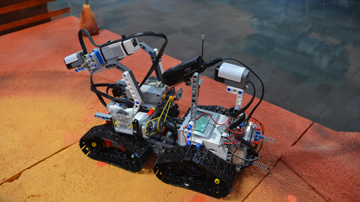 Inquiry science
Inquiry science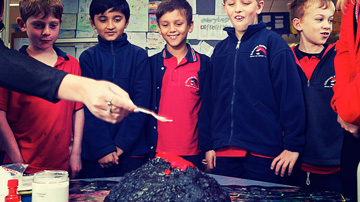 Schools science project
Schools science project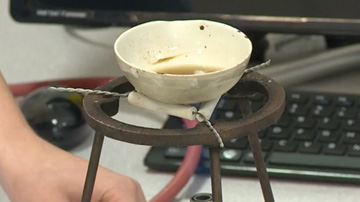 Science in Schools
Science in Schools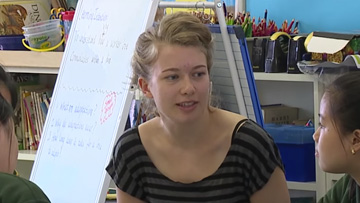 Science and mathematics specialist pathways
Science and mathematics specialist pathways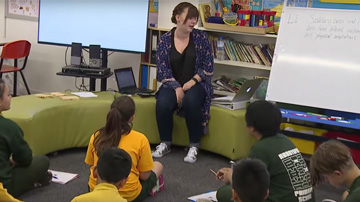 Science and Mathematics in the Classroom
Science and Mathematics in the Classroom